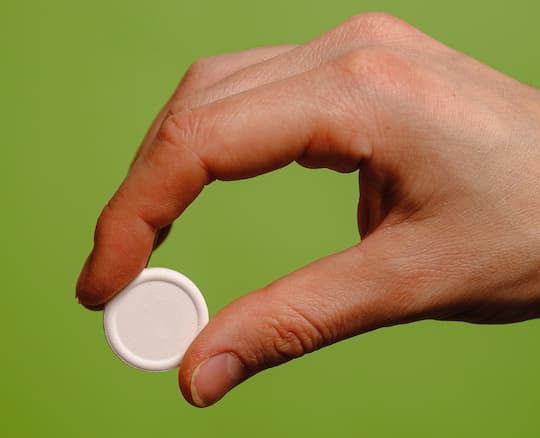People taking these supplements and vitamins were able in some cases to lose weight without making other lifestyle changes.
Taking inulin, vitamin D supplementation and drinking low fat milk have each been repeatedly linked to weight loss.
Inulin, a natural fibre available as a supplement, could quadruple weight loss, one study has found.
Inulin is a fibre found naturally in many foods, including leeks, wheat, onions, bananas and asparagus.
Also, taking a vitamin D supplement is repeatedly linked to weight loss by studies.
People taking vitamin D lose weight without dieting or making other lifestyle changes.
Adding in dieting and exercise can help to boost weight loss even more.
Drinking three cups of low-fat milk each day can double weight loss, research finds.
Obese and overweight women in the study dropped 10 pounds in 8 weeks when they drank a pint-and-a-half of low-fat milk every day, along with following a diet.
Professor Gary Frost, co-author of a study on the inulin and weight loss, said:
“These results are encouraging in that they show this potential food supplement, when combined with exercise, can help people burn through their fat stores faster, decreases appetite and could in the long term help to achieve a healthy weight.”
In addition, inulin is found naturally in many foods, including wheat, leeks, bananas and asparagus.
The fibre helps the body burn fat faster and reduces cravings for high-calorie foods.
Authors of a study on the link between weight loss and low-fat milk write:
“Our results showed that consumption of low-fat milk enhanced the beneficial effect of an energy restricted diet on central and general obesity and therefore a diet rich in dairy calcium could be tried in obese persons.”
Authors of the study on vitamin explained:
“The findings of this double-blind clinical trial study in obese and overweight women aged 20–40 years showed that supplementation of the vit D with dozes 50,000 IU/w for 6 weeks reduced significantly the mean BMI [body mass index], weight and on the other hand, it increased significantly the level of vit D in comparison with the control group.”
The study was published in the journals Cell Host & Microbe, Metabolism and Journal of Preventative Medicine (Faghih et al., 2019; Malkova et al., 2020; Zou et al., 2018).

